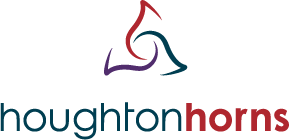Yes, this is a Google Search topic that comes up frequently and I’d like to take an opportunity to share some insight and provide answers to this curious question.

Of course, this question lends itself to a myriad of comical, tongue-in-cheek answers, including “a superhero” or “a brass player who puts their hand in the bell and misses lots of notes”. But, joking aside, there are some historical reasons that the horn first adopted the adjective “French” to its title and why it is now referred to simply as the “horn”.
The modern-day horn is a descendant of the hunting horns used in France and Germany during the sixteenth century. It is believed that the French most likely introduced this rustic instrument to the orchestra, hence adopting the name “French horn”.

British horn players, beginning in the nineteenth century, played horns manufactured in France, as opposed to other Europeans who used German-made instruments.
Later, with the emergence of jazz in the United States, all wind instruments came to be referred to as “horns”, including saxophones, trumpets, etc. In order to distinguish between these jazz horns, American orchestral players chose to retain the original title of “French Horn” to describe their instrument.

However, by this time in history most of the world had dropped the “French” adjective and were calling it simply the “horn”. Except in the United States, where players stubbornly held on to the full name of the instrument. To avoid further confusion and to conform to the rest of the world, the International Horn Society, established in 1970, declared at the 1971 Horn Symposium in Tallahassee, Florida, that “horn” be recognized as the formal name for the instrument in the United States.
And now, as for the response to this curious, compelling question: “What do you call a French horn player?”, I must reply with the most simple of answers: “a hornist”.


Nigs Balchin
Talk about filling out the answer!
It took quite a route to get to the answer, though not an uninteresting route, and it took us having to read through to the very last word in the extended answer to actually see the word we were interested in in the first place.
Well done!